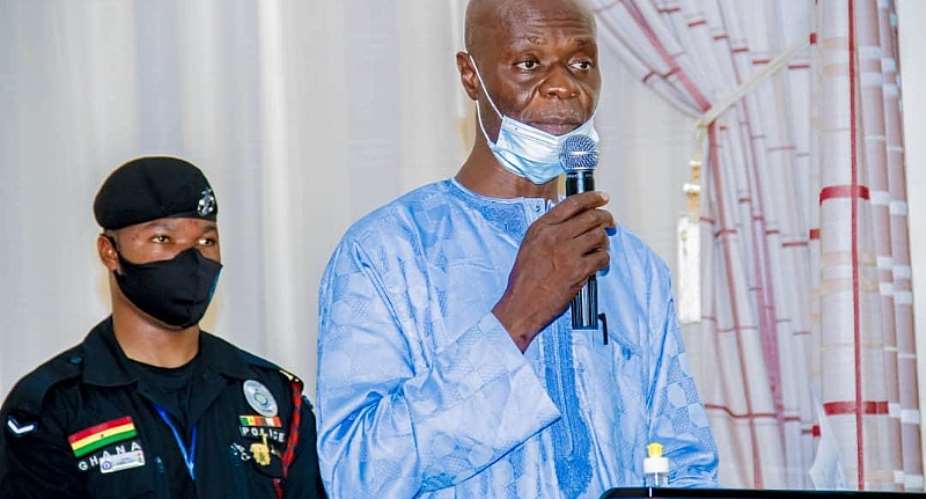Population Census is the official enumeration of all persons in a country at a specified time. The enumeration includes the collection, compilation, evaluation, analysis, publication and dissemination of demographic, social and economic statistics relating to the population.
In Ghana, this is generally conducted every decade to provide essential information on citizenry spatial distribution, age and sex structure, and other key social and economic characteristics.
Over the last decade, the Government of Ghana, businesses and Civil Society Organisations (CSOs) relied heavily on the 2010 Population and Housing Census for developmental processes including the Ghana Poverty Reduction Strategy (GPRS), the Livelihood Empowerment Against Poverty (LEAP), the Ghana Shared Growth and Development Agenda (GSGDA) and an Agenda for Jobs: Creating Prosperity and Equal Opportunity for all.
Globally, this data was utilized in interventions geared towards the attainment of the African Union’s Agenda 2063, the Sustainable Development Goals (SDGs) and other developmental processes.
However, the 2010 Population and Housing Census data is outdated as the country has witnessed a significant increase in population and in relation to social and economic characteristics. This makes the 2021 Population and Housing Census exercise the most desired and waited-for document to accelerate national and global development process.
Northern Regional Minister, Hon. Alhaji Shani Alhassan Shaibu

He said the 2021 Population and Housing Census will provide a huge amount and variety of data to support both national and global development processes.
“The benefits of the census are enormous. Information will be collected on every structure and their uses, water and sanitation resources, households and individuals, thereby providing reliable and disaggregated data to lowest levels of administration and geography, including rural and urban differentiation,” he said.
He added that the census will enable the regions and districts to obtain relevant data to support key decisions, including data on the proportion of urban population living in slums, informal settlements or poor housing conditions.
Hon. Shaibu expressed optimism that, “the data obtained from the census will help to attract new businesses to the regions, districts and localities, adding that, the data is critically needed by the Regional Coordinating Councils for the purpose of planning and formulation of policies geared to the creation of jobs, eradicating poverty and all forms of inequalities and vulnerabilities in the districts and regions, and generally to ensure that we leave no one behind in our development agenda.”
He assured that the Regional Coordinating Council will ensure necessary security measures to protect enumerators, census officials and citizens for a smooth conduct of the census in the Northern region.
“The Council will continue to build the needed systems, bring together diverse expertise, mobilise resources, and support strategies to support the conduct of a successful Census,” he added.
He urges the populace to avail themselves of the exercise to enable the country obtain reliable and timely data to accelerate national and global development.





 NPP Running Mate: 'No decision made yet, so let's be careful how we describe eac...
NPP Running Mate: 'No decision made yet, so let's be careful how we describe eac...
 I never mentioned Justice Yonny Kulendi’s name in court – Richard Jakpa
I never mentioned Justice Yonny Kulendi’s name in court – Richard Jakpa
 Bawumia running mate: It might be him or not; his service, work ethics isn't in ...
Bawumia running mate: It might be him or not; his service, work ethics isn't in ...
 NDC has no heart, love for Free SHS policy — Kwamena Duncan
NDC has no heart, love for Free SHS policy — Kwamena Duncan
 NDC withdraws 2024 Assin Central Parliamentary candidate, suspends membership
NDC withdraws 2024 Assin Central Parliamentary candidate, suspends membership
 Gov’t double grants for households under LEAP, January-February payment begins J...
Gov’t double grants for households under LEAP, January-February payment begins J...
 Ablakwa vs Rev Kusi Boateng: We’re compiling our decision — CHRAJ
Ablakwa vs Rev Kusi Boateng: We’re compiling our decision — CHRAJ
![Rev Kusi Boateng[left] and North Tongu MP Samuel Okudzeto Ablakwa](https://cdn.modernghana.com/content__/84/56/6282024101216-k5frj7u2h1-img6751.jpeg) Ablakwa vs Rev Kusi Boateng: JNS Talent Centre delaying in providing requested i...
Ablakwa vs Rev Kusi Boateng: JNS Talent Centre delaying in providing requested i...
![Former President Donald Trump[left] and President Joe Biden](https://cdn.modernghana.com/content__/84/56/628202495221-k5fqi7t2h0-img6791.jpeg) US presidential debate 2024: Biden failed to defend his disastrous record — Tru...
US presidential debate 2024: Biden failed to defend his disastrous record — Tru...
 June 28: There will be chances of rain over southern Ghana this morning — GMet
June 28: There will be chances of rain over southern Ghana this morning — GMet
